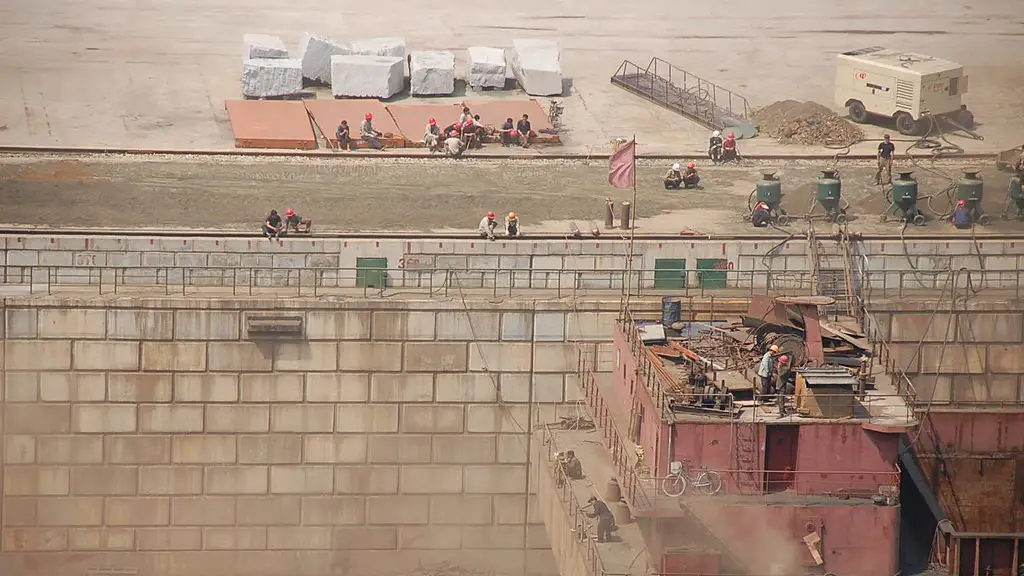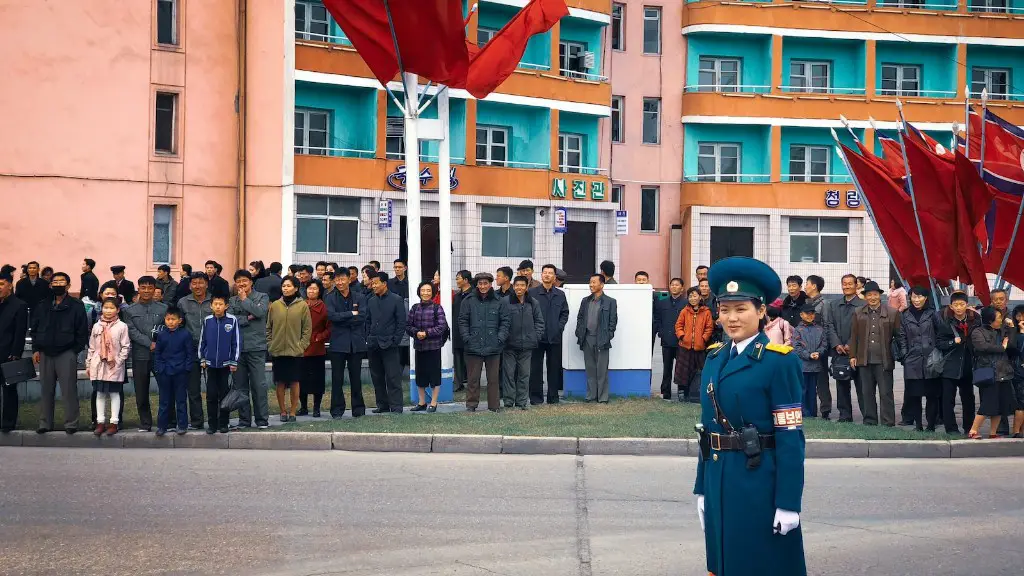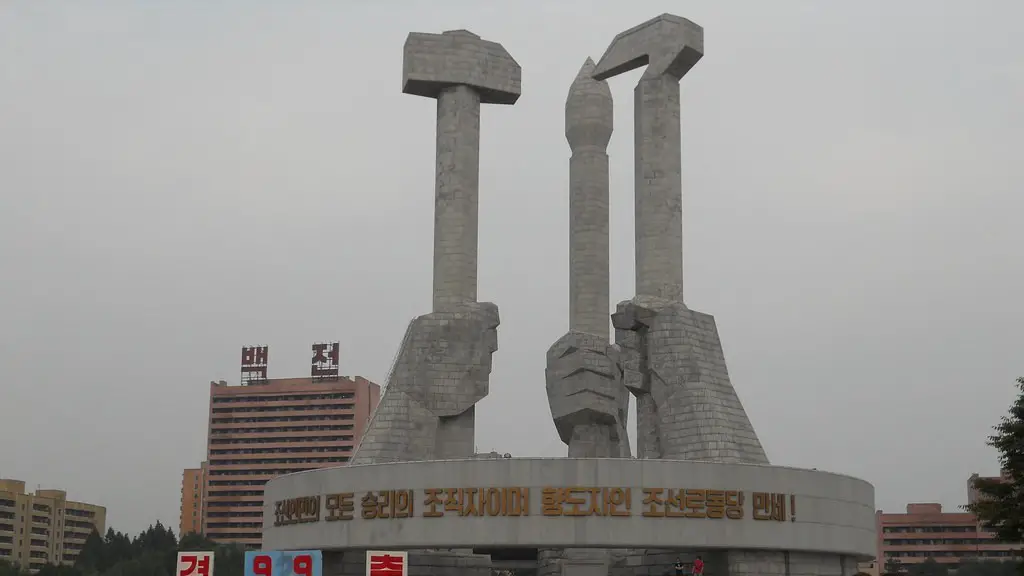The current Supreme Leader of North Korea is Kim Jong-un, the youngest son of former leader Kim Jong-il. He took office in 2011 at the age of 28, and is the third-generation leader of the Kim dynasty to rule the nation. North Korea is currently one of the world’s most isolated countries, and the autocratic leadership of the Kim dynasty is largely seen as the cause of this isolation. Kim Jong-un is a figure of great controversy and is known for his iron rule and aggressive posturing towards other countries, particularly South Korea and the United States.
As Supreme Leader, Kim Jong-un has consolidated his power, engaging in a relentless purge of potential political rivals and controlling the country’s vast military and intelligence apparatus. He has presided over numerous human rights violations, including forced labor, political imprisonment, and torture. His government has also been criticized for failing to provide adequate healthcare and education, particularly in rural areas. Those who are loyal to Kim Jong-un are known to receive preferential treatment, while those who oppose him risk imprisonment or worse.
Under Kim Jong-un’s rule, North Korea has become increasingly isolated from the rest of the world, as the government has engaged in an aggressive nuclear weapons program. He has overseen several nuclear tests, including the detonation of a large-scale 3-stage hydrogen bomb. Despite international condemnations and sanctions, Kim Jong-un shows no signs of slowing the nation’s nuclear program. His government has also threatened preemptive nuclear strikes against the United States and its allies.
Despite his authoritarian rule, Kim Jong-un is seen as a hero among many of his citizens. He is celebrated in state-sponsored propaganda and is portrayed as a father-like figure to the people. He is known to have made several public appearances, including attending military parades and other official events. He also frequently travels abroad, often to meet with other leaders such as Chinese President Xi Jinping and Russian President Vladimir Putin. In recent years, he has reached out to South Korea to improve relations and even traveled to Singapore to meet with US President Donald Trump.
Kim Jong-un’s rule has been an era marked by both isolation and diplomatic engagement. His government has remained highly repressive, but he has shown a willingness to engage with the international community. It remains to be seen whether his leadership will lead to greater stability and progress for North Korea, or further stalemate and potential conflict.
What are the Economic Consequences of Kim Jong-un’s Rule?
Kim Jong-un’s rule has had a major impact on the economic health of North Korea. His government has been criticized for its mismanagement of economic resources, with billions of dollars being spent on the military while government funds are diverted away from healthcare, education, and other public services. The government has also heavily restricted trade with foreign countries due to its isolationist policies, creating further economic hardship for the North Korean people. Despite its immense potential for economic growth, the country remains one of the world’s poorest, with over 70% of the population living in poverty.
The North Korean economy is also plagued by rampant inflation and mismanagement of resources. A number of controversial economic policies have been enacted by the government, including the imposition of strict price controls and the centralization of the economy. These policies have resulted in widespread shortages of basic goods, such as food and fuel. As a result, millions of North Koreans are unable to meet their basic needs and increasingly dependent on government handouts.
The long-term consequences of Kim Jong-un’s rule on the economy remain unclear. It is likely that the country will remain largely isolated from the global economy in the foreseeable future, with no immediate hope of relief from the economic hardship. Many experts have urged the government to reform its economic policies and open up the country to foreign trade and investment, but the Kim dynasty has remained largely resistant to external pressures.
What is North Korea’s Relationship with the Rest of the World?
Under Kim Jong-un’s rule, North Korea has seen an unprecedented level of international isolation. The government has continuously refused to engage with the international community, rejecting all forms of criticism of their human rights violations and nuclear program. International sanctions have been imposed on North Korea in response to these policies, further weakening their already fragile economy.
At the same time, Kim Jong-un has also engaged in diplomatic efforts to improve relations with other countries, particularly South Korea and the United States. He has held several high-profile meetings with various world leaders, including the 2018 summit with US President Donald Trump. He has also reached out to South Korean president Moon Jae-in to try and establish better relations between the two countries. These diplomatic initiatives have led to a warming of ties between North Korea and the rest of the world, although the effects of these efforts remain to be seen.
Despite these efforts, North Korea remains largely isolated from the international community, and it is unclear whether Kim Jong-un will be able to maintain these diplomatic ties in the long run. For now, the country’s relationship with the rest of the world remains a complex one, with few real prospects for progress.
What Role Does the Military Play Under Kim Jong-un’s Rule?
The military is a key part of Kim Jong-un’s rule, and the government has heavily invested in the country’s military apparatus. North Korea has one of the world’s largest standing armies, with over 1.2 million active personnel and numerous military bases and weapons installations. The military is seen as a source of national pride, and the government often engages in public displays of military strength in order to bolster its legitimation.
Kim Jong-un has also used the military to project power abroad, particularly with regards to their nuclear weapons program. North Korea has repeatedly threatened nuclear strikes against the United States and its allies, and has conducted numerous tests of its missile technology. In recent years, the country has also made efforts to modernize its forces, with the government investing heavily in new weapons and military hardware.
The military is a symbol of Kim Jong-un’s rule, both domestically and internationally. He is known to have close ties with the country’s military leadership, and has personally overseen several military operations and exercises. For now, the North Korean military remains an integral part of the government, and it is likely that the country will continue to utilize the military as a tool of power and legitimacy.
What are the Human Rights Issues in North Korea?
North Korea has long been criticized for its systemic human rights violations, and conditions under Kim Jong-un’s government have only worsened. The government has been accused of torture, arbitrary detention, forced labor, and restrictions on freedom of speech, movement, and assembly. It is estimated that over 200,000 North Koreans have been jailed in political prisons, where they are subjected to torture and other forms of abuse.
In addition, the government has also denied its citizens access to basic services such as healthcare and education, particularly in rural areas. Reports suggest that the country is facing a food crisis, with over 10 million North Koreans reportedly suffering from chronic food insecurity. The government has also been accused of widespread censorship and surveillance, with reports of people being subjected to random searches and monitoring.
Human rights organizations have called on North Korea to end its abuses, but the government has largely ignored or denied these allegations. Kim Jong-un has remained unapologetic in his rule and has given no indication that he will address the country’s human rights issues. Until the government takes meaningful steps to change its policies, the plight of the North Korean people is likely to remain unchanged.
What is Kim Jong-un’s Legacy?
It is still too early to determine the legacy of Kim Jong-un’s nearly decade-long rule. While the country remains largely isolated and continues to face numerous economic and human rights challenges, he has made some attempts to engage with the international community. He has played a key role in the negotiations with the United States and South Korea, and has allowed a degree of incremental progress in relations between the two countries.
At home, Kim Jong-un has continued the legacy of his father and grandfather, maintaining absolute control of the nation and its resources. His government has remained highly oppressive and there has been little meaningful progress in alleviating the country’s economic hardship or improving the living standards of the people. For now, Kim Jong-un continues to preside over one of the world’s most isolated countries, and his legacy will likely remain an open question in the years to come.




